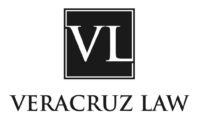Effective trust and estate planning facilitates the orderly transfer of assets to your beneficiaries, provides security for your surviving spouse, and can reduce or eliminate the tax due on the transfer of your business and other assets.
For business owners, providing for business continuity and succession of ownership is essential. Since much of our practice’s work is in estate administration and trust accounting, we can guide you through the complex process of getting your financial affairs in order. We work closely with our clients and their attorneys, financial advisors, insurance agents and others to establish a total estate or trust plan.
- Estate and trust income tax return preparation
- Estate tax return preparation, including calculation of a Deceased Spouse’s Unused Exclusion Amount (Portability)
- Trust accounting
- Court accounting
- Bookkeeping for trust/estate
- Assistance with various trustee tasks, including calculation of trustee fees, and more
The trust instrument itself may either broaden or narrow the trustee’s statutory duty to account. A trust might broaden the scope of who receives an accounting, for example, to include future beneficiaries. Alternatively, the trust might eliminate the requirement altogether. That said, even when the trust waives the accounting requirement, a trustee may still provide one to protect himself against possible claims by unhappy beneficiaries alleging a breach of one or more trustee duties. Furthermore, a beneficiary may still petition the court for an accounting when there is reason to believe that the trust was mishandled.
From a trustee’s perspective a trust accounting is very important. It helps him discharge his legal responsibilities within a set time. An accounting that is mailed to beneficiaries must be accompanied by a legal notice that meets specific legal requirements to alert the recipients of their legal rights to dispute the accounting within three years of receipt. A trustee may shorten this time to 30 days by petitioning the court to approve the accounting with notice to all beneficiaries. Without an accounting the trustee remains indefinitely liable to future court actions.
Broadly speaking, the accounting must sufficiently detail the assets, transactions, liabilities, and persons hired by the trustee. Each is disclosed in the relevant accounting schedule. Thus, a trustee keeps all underlying documents related to asset values (such as appraisals) and financial transactions (such as transactional invoices, receipts and monthly financial statements). An accounting that is too generalized will be insufficient.
A trust accounting should meet California Probate Code requirements in case it is submitted for court approval. California trust accountings have their own unique set of rules under the California Probate Code, not to be confused with either tax or financial accountings as prepared by a CPA for business or tax purposes. A balanced trust accounting is one where the sum of all the charges equals the sum of all the credits.
In order to balance the charges and credits the concept of “carry value” is used in trust accountings. Carry value represents, in dollar terms, the amount of responsibility that the trustee carries with respect to each asset. Carry value is not the same as fair market value, net value or current value. For example, a successor trustee who steps in at the death of the settlor/trustee to distribute the trust estate will use the date of death appraisal value of each trust asset as its carry value. Liabilities are not subtracted and do not count in balancing an accounting, although are disclosed in a separate schedule of liabilities.
An asset’s carry value remains constant throughout the accounting even though its actual present value may change during the same period. This is because the carry value is a substitute for the actual asset itself (a constant) and the trustee’s responsibility for the asset does not change with changes in its value. Thus, for example, a successor trustee of a deceased settlor’s living trust that owns a house with a carry value of $250,000 can still show he discharged his duty when four months later he distributes the house even if its value has declined to say $225,000.
There are many more technicalities to preparing a trust accounting than discussed above. Suffice it to say that a trustee typically needs the professional assistance of an attorney and/or accountant to prepare the trust accountings to meet his duty to account.
California statutory law requires a trustee to account annually to current trust beneficiaries, i.e., those who are currently entitled to receive distributions of income and principal during the accounting period. Any trustee, other than the settlor(s) who established the trust, has a duty to account. Let us discuss some basic concepts regarding the trustee’s duty to account.
